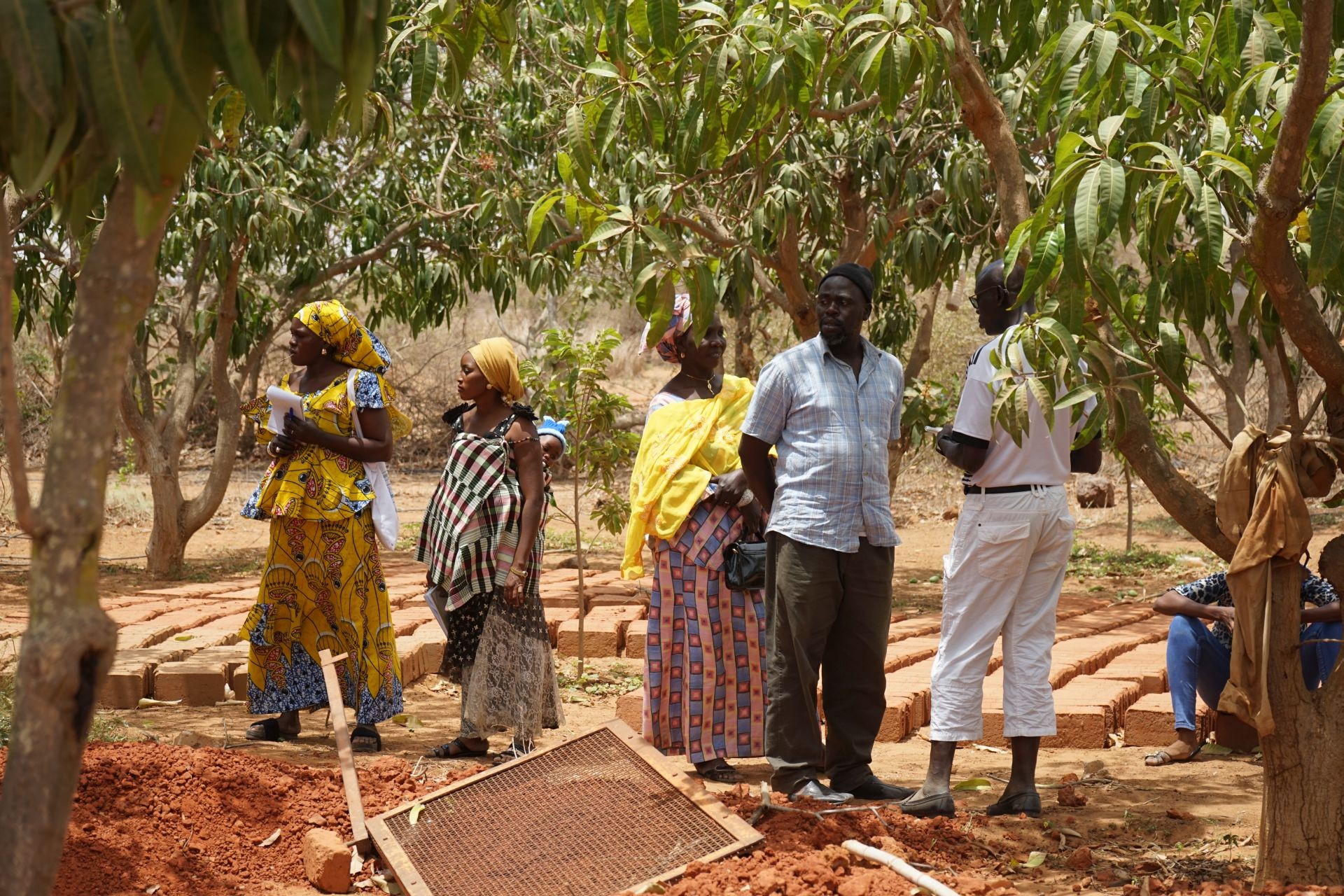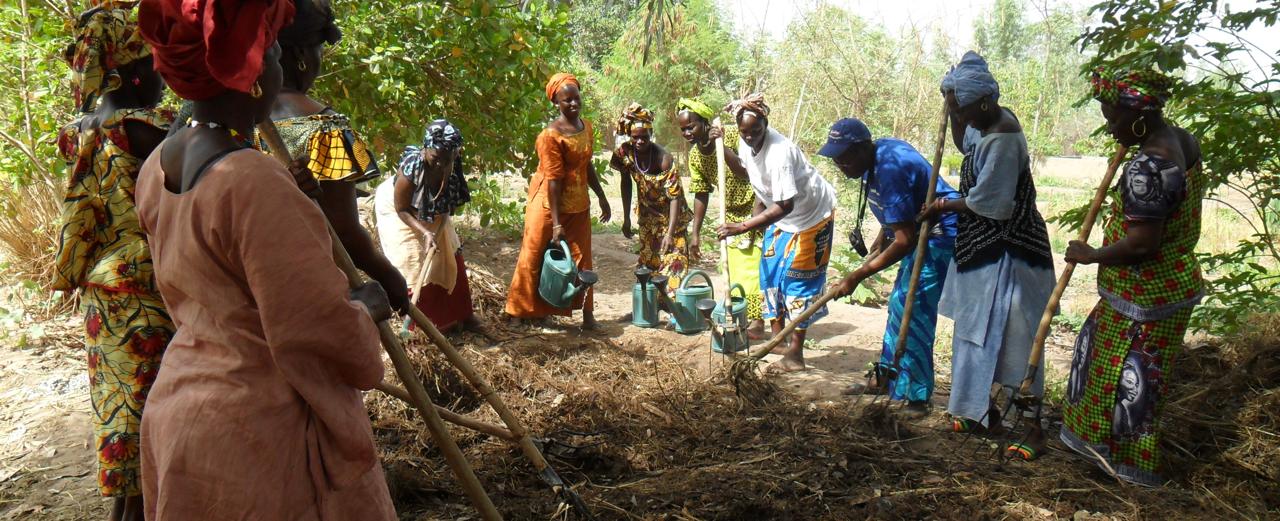 New life one tree at a time
New life one tree at a time
Healthy soils and an improved climate in Senegal
"For years, we have grown nothing but peanuts. The soil is now completely depleted and no longer yields anything," Alioune and Seynabou Ndoye from the Kaolack region in western Senegal recount. In addition, climate change with long droughts and extreme rainfall is contributing to further erosion of the degraded soils. The concentration on peanut cultivation has resulted in declining harvests and high seasonal unemployment. Entire families could no longer feed themselves and most young people migrated to the cities. "We were about to give up, like many others," some locals say. But the planting of the leguminous trees changed everything. These trees act as fertilisers for the soil: They live in a symbiosis with soil bacteria that transfer nitrogen from the air into the soil. This makes the soil more fertile and allows for a greater variety of crops.
Necessity
Planting trees that make depleted soils in Senegal more fertile again.
Activity
Smallholder farmers receive tree seedlings and learn organic farming techniques.
Countable effort
Number of hectares planted with fertilising trees and number of small farmers transitioning to agroforestry.
Result
The first fruits, herbs and vegetables from different plants can be harvested because the soils are slowly recovering.
Systemic effect
The soils have recovered and are more fertile again. More nutritious plants grow here in greater diversity. They are tended by trained groups.
Background
Senegal loses almost 123 hectares of forest every day. That is 5 hectares of forest per hour. Of the 3,805,000 hectares of arable land available to Senegal, 2,511,300 hectares (that is 66 per cent) are severely damaged due to poor agricultural practices (FAO, 2016). In addition, the population is growing rapidly. More people in the cities and in the countryside need room to live and must be provided for. Natural ecosystems are barely able to absorb this pressure. After many years of growing monocultures, that is, cultivating the same plant species on the same area, the soil is exhausted. In order to meet the increasing demand for land, large areas of forest have been cleared. All this has led to the destruction of forest cover, the depletion of food and animal feed and a decline in biodiversity (FAO, 2017). Climate change tends to increase the intensity of rainfall. But with droughts and heavy rainfall alternating, this poses new challenges for soil management. One solution is reforestation through agroforestry. Planting fertilising trees allows the soil to recover as the tree roots better absorb and store precipitation and nutrients. This means that the forests and fields can more readily withstand periods of drought.
The good deed
With today's good deed you support reforestation in Senegal. In a series of workshops, the organisation APAF informs the affected villagers about the causes of soil erosion and the potential of reforestation for soil conservation. Subsequently, women learn the techniques of organic farming. Through the training courses they not only gain new skills for themselves, but they also strengthen their position in the villages. The tree nurseries are a central place for the furthering of knowledge and exchange and are used to cultivate fertiliser trees and fruit trees. Seeds for vegetable beds are also provided and exchanged. This allows the farmers to generate an income, and not only ensure their own food security, but also the recovery of the soil.

AboutSenegal
Dakar
16,296,360
US$ 3,256
Placed 166th out of 189
Senegal, located in West Africa, was forced to grow peanuts in colonial times. Today it is still the tenth largest peanut producer in the world. The cultivation of peanuts in this arid country has made vast areas of land infertile.
About the organization and further information
World Solidarity Foundation
Website


Further information and source
- Agence Nationale des Statistiques et de la Démographie du Sénégal, 2015: Rapport sur la Situation Économique et Sociale du Sénégal, Dakar.
- ASW, 2019. Neuer Mut durch Aufforstung mit Düngerbäumen, Berlin.
- Bélanger, J., Pilling, D. (Hg.), 2019. The State of the World’s Biodiversity for Food and Agriculture, FAO Commission on Genetic Resources for Food and Agriculture Assessments. Rom.
- FAO, 2016. Situation des forêts du monde 2016 – Forêts et agriculture : défis et possibilités concernant l’utilisation des terres, Rom.




